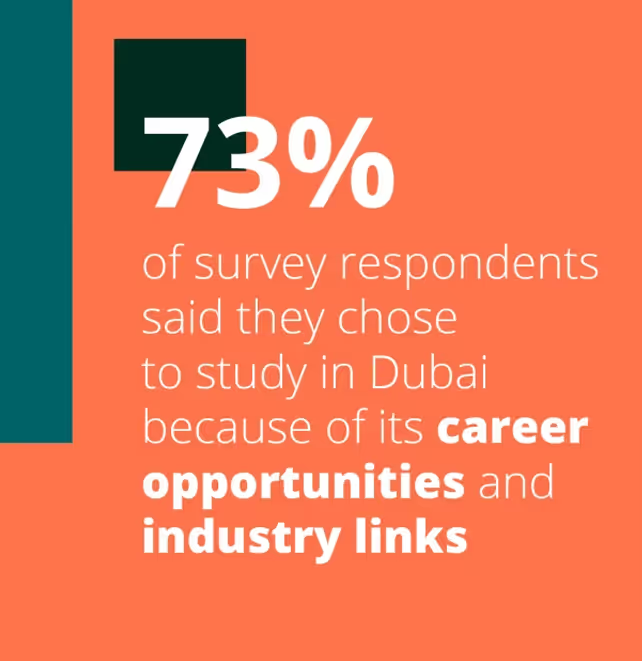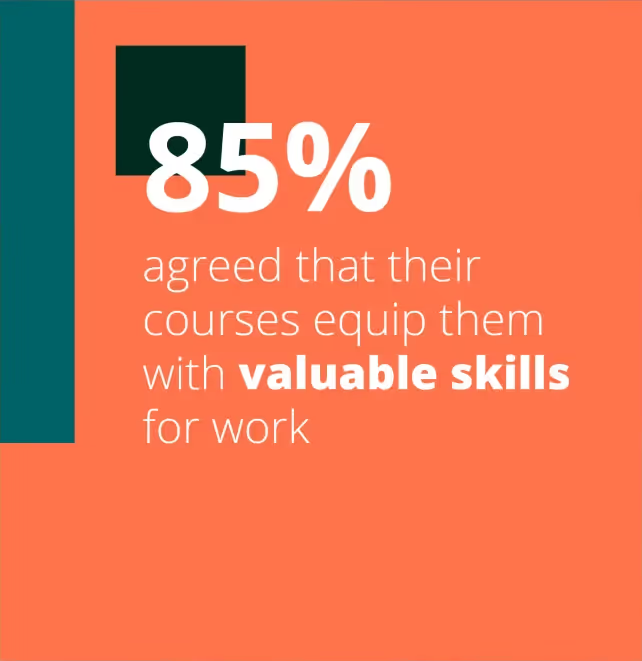
Future Skills and the
Workforce of Tomorrow
Positioning Dubai as a Global Destination for Higher Education and Talent

Published in collaboration between TECOM Group and Times Higher Education, this white paper explores how Dubai is positioning itself as a world-leading hub for higher education and future skills development. It charts the evolution of Dubai’s higher education ecosystem over the past two decades, from a small number of campuses to one of the most diverse, globally connected, innovative, and fast-growing higher education markets in the world.
Today, there are 41 universities in the emirate, including 37 international branch campuses from 13 countries, representing a 37% increase since 2022. Student enrolments have also risen sharply to over 42,000 in the 2024/25 academic year, and are projected to double by 2040, highlighting Dubai’s success in attracting both international learners and locally based students seeking globally recognised degrees.


This rapid growth has coincided with the rollout of two transformative strategies for the emirate - Dubai Economic Agenda (D33) and Education 33 (E33) - which place human capital, innovation, and technological advancement at the heart of the emirate’s economic vision. Together, they aim to align education with the skills demanded by emerging industries, ensuring that the next generation of graduates are equipped for the workplace of tomorrow.
This white paper draws on extensive qualitative and quantitative research, including surveys of over 320 students, graduates, and employers, alongside in-depth case studies from leading international branch campuses such as the University of Birmingham Dubai, Middlesex University Dubai, and the University of Wollongong Dubai. These case studies illustrate how universities are bridging the gap between academia and industry, ensuring that students are equipped with the skills needed for the workplace.




